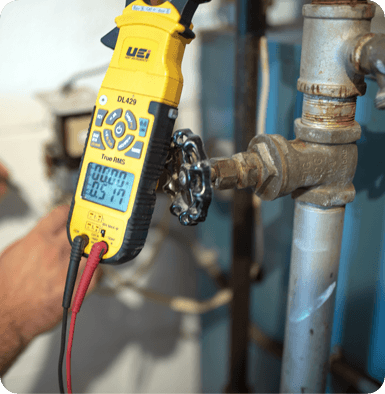
Home Heater Ratings Explained
Philadelphia’s Top Heating Contractors
Heating systems are pivotal for maintaining comfort in your home during the chilly months. To get the most out of yours, you’ll want to make sure your system has a high efficiency rating. At Green Heating, Cooling, & Electric, we’re here to help you understand the various heater ratings and make an informed decision for your home.
Understanding Home Heater Ratings
Home heater ratings are crucial measures of the efficiency and performance of a heating system. These ratings help you understand how well a heating system can convert fuel or electricity into heat, allowing you to select a system that optimizes energy consumption and reduces utility bills.
1. AFUE (Annual Fuel Utilization Efficiency)
This rating is applicable to gas and oil-fired furnaces. Represented as a percentage, AFUE measures how efficiently a furnace converts fuel to heat over a year. For instance, an 80% AFUE rating indicates that 80% of the fuel is converted to heat, and the rest is lost through exhaust.
2. HSPF (Heating Seasonal Performance Factor)
This factor is pertinent to heat pumps, measuring their efficiency over a heating season. A higher HSPF value represents greater efficiency. Modern heat pumps typically have an HSPF ranging between 7 and 10.
3. BTU (British Thermal Unit)
BTU is the unit of measure for heating capacity, indicating the amount of heat required to raise the temperature of one pound of water by one degree Fahrenheit. A system with a higher BTU can produce more heat and is suitable for larger spaces.
4. SEER (Seasonal Energy Efficiency Ratio)
SEER is essential for evaluating the efficiency of heat pumps and air conditioners over a cooling season. A higher SEER rating implies enhanced energy efficiency and lower energy costs.
Importance of Efficiency Ratings
Efficiency ratings are vital for several reasons. They guide consumers in choosing energy-efficient models, which lead to significant savings on energy bills and reduce environmental impact. Energy-efficient heating systems utilize less energy, curb electricity wastage, and decrease greenhouse gas emissions, contributing to environmental conservation.
How to Choose the Right Heater
Selecting the right heater involves considering the size of your space, climate, insulation, and your specific heating requirements. Green Heating, Cooling, & Electric recommends prioritizing high-efficiency models, even if they have a higher upfront cost, as they will lead to substantial savings in the long run due to reduced energy consumption and lower maintenance costs.
Energy Star Certification
When exploring heating options, look for the Energy Star label. Products with this certification meet strict energy efficiency guidelines set by the U.S. Environmental Protection Agency and the U.S. Department of Energy. These products guarantee superior efficiency, quality, and performance.
Contact Philadelphia’s Top Heating Contractors Today
Understanding home heater ratings is crucial in making an informed and economical decision for heating your space. Whether it’s AFUE, HSPF, BTU, or SEER, these ratings offer insights into the energy efficiency, performance, and suitability of heating systems for your specific needs. Green Heating, Cooling, & Electric is here to assist you every step of the way, ensuring you choose a heating solution that is eco-friendly, economical, and perfect for your home. Contact our Philadelphia heating contractors today to get started!



